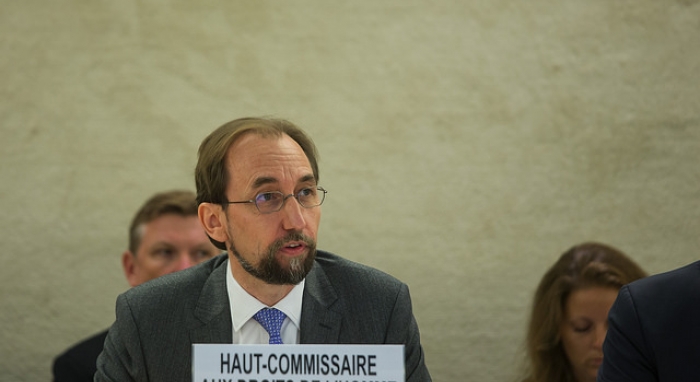In a new report on civil society engagement at the UN, the High Commissioner for Human Rights concludes that the effective functioning of international and regional organisations is inextricably linked to civil society participation. Concurrently, he highlights that human rights defenders and NGOs continue to face a vast array of restrictions and risk being targets of reprisals when seeking to engage with the UN. The report reflected various restrictions on civil society, as well as recommendations to improve civil society participation, set out by in ISHR in its submission to the report.
Restrictions faced
The High Commissioner acknowledged that numerous obstacles to the full and effective participation of civil society remain. For many defenders, restriction begins long before they reach UN grounds. At the 61st session of the UN Commission on the Status of Women, women human rights defenders were denied visas and security clearances to enter the US. The exclusion of women human rights defenders recurred this year in the 62nd session to a higher degree.
‘Civil society’s right to communicate with intergovernmental organisations is well established’, says ISHR’s Eleanor Openshaw. ‘It is unacceptable that civil society voices continue to be restricted, and even silenced, in many UN spaces.’
Referring to the Secretary-General’s annual report on reprisals, the High Commissioner listed a range of reprisals experienced by those engaging with the UN, including travel bans, financial persecution, surveillance, smear campaigns, unlawful arrests and detention, torture, and sexual assault, among other abuses.
The High Commissioner is clear about the adverse impact of reprisals against individuals seeking to cooperate or cooperating with the UN. He notes that they both generally constitute individual human rights violations but also risk undermining the effectiveness of the system as a whole.
ISHR welcomes his recommendation to ‘ensure the safety and security of persons seeking to engage with regional and international organisations, including online, prevent any acts of reprisals by State or non-State actors against them and, when such reprisals do occur, condemn them and ensure accountability and access to an effective remedy ‘.
ISHR’s Tess McEvoy says that the UN needs to take more concrete action on intimidation and reprisal. ‘There needs to be a unified and comprehensive response to these cases’, she adds. ‘All States need to take action against cases of reprisal no matter where they occur.’
Proposed reform
Though dire in its description of restrictions at the UN, the report does propose some institutional reforms to deepen civil society participation in UN bodies, such as NGO advisory boards or liaisons, accountability mechanisms to address restrictions, and expanded remote participation.
The High Commissioner also emphasises the need to diversify civil society participation by reaching out to groups including women, children, young people, older persons, persons with disabilities, ethnic, national, linguistic and racial minorities, migrants and indigenous peoples.
The report specifically points to the NGO Committee – notorious for its politicised practice – as an area for reform, including reviewing the practice and procedures of the NGO Committee to ensure it complies with international standards such as non-discrimination, accountability and transparency.
‘The High Commissioner’s conclusion about the effectiveness of the system riding on civil society engagement is significant’, said McEvoy, ‘It speaks to the essential role civil society plays in holding States to account and contributing to UN debates, but also in striving for a system fit for the purpose of fulfilling the aims of the UN Charter.’
‘We call on UN bodies and mechanisms, as well as States, to ensure recommendations in this report become reality,’ McEvoy concluded.
Contact: Tess McEvoy, [email protected].
Photo: flickr_us_mission_in_geneva.




